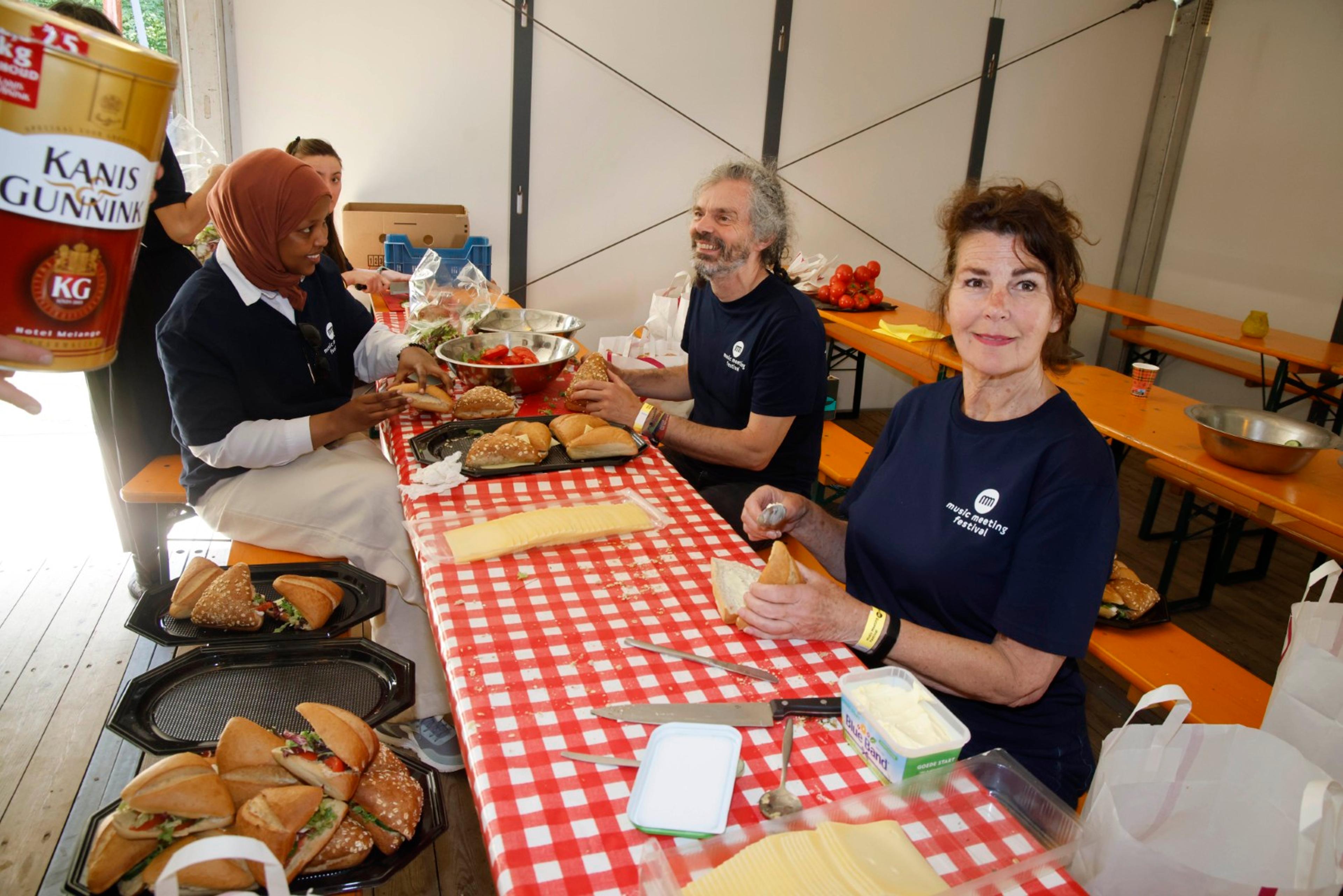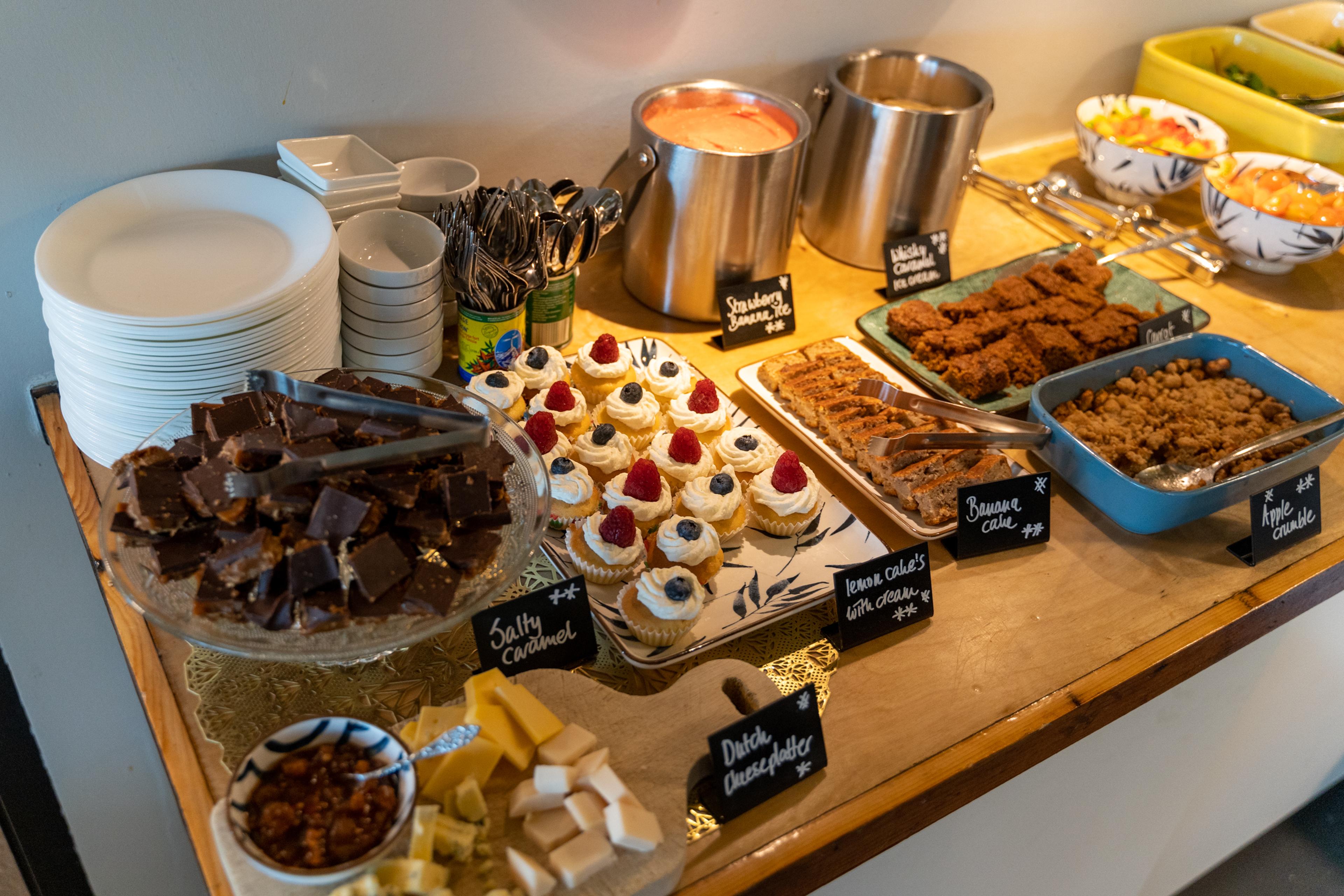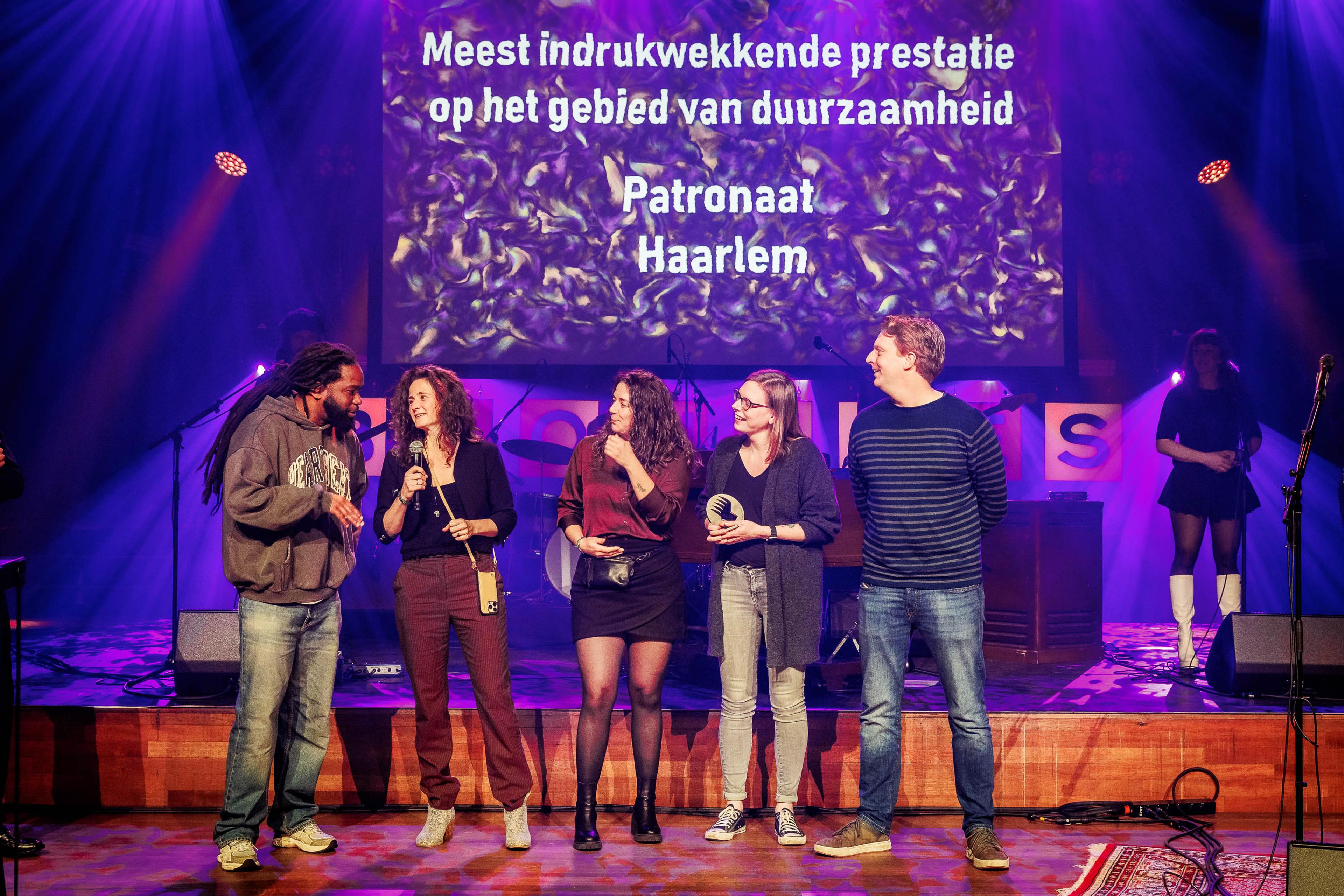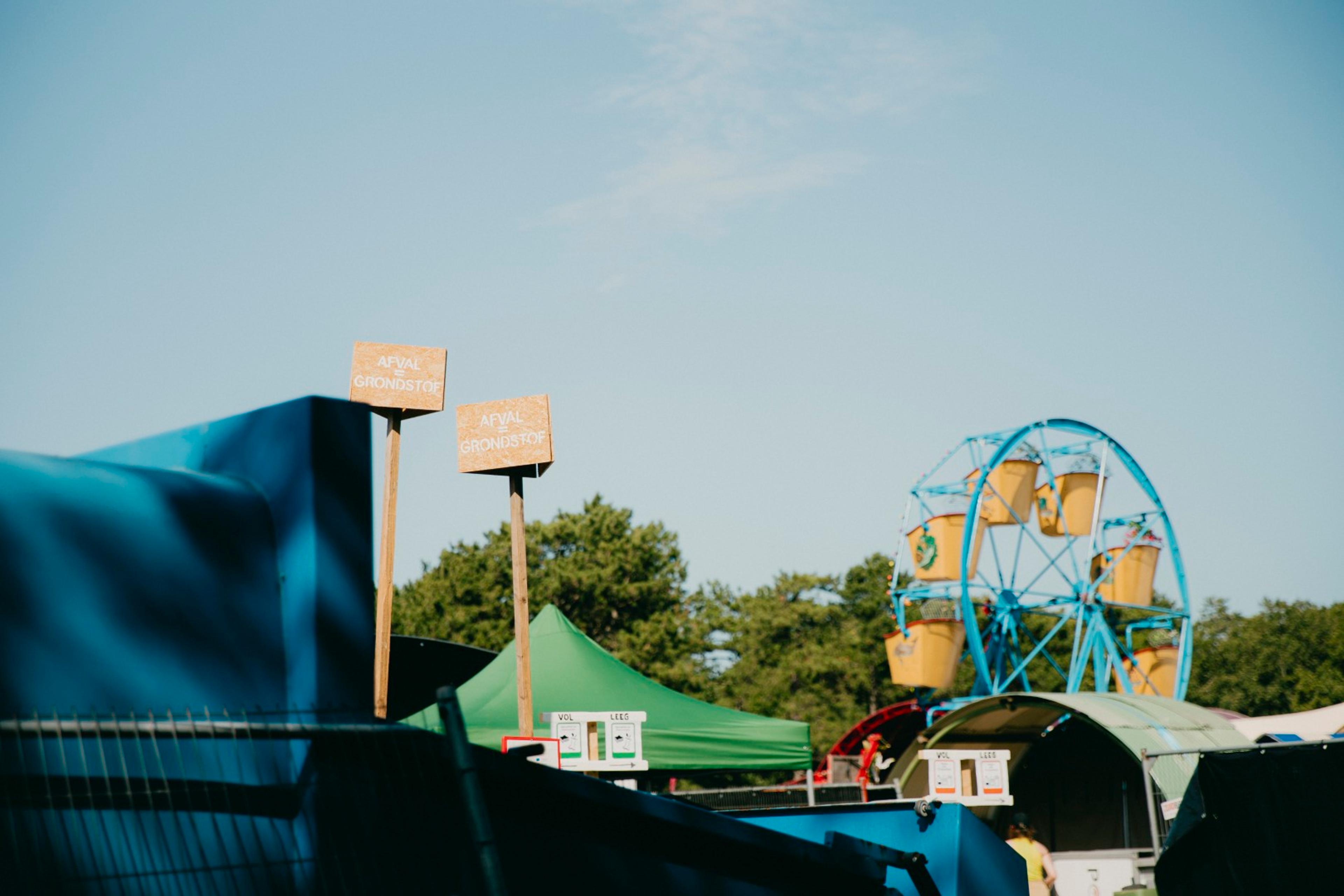
Sustainability in the cultural sector: examples & best practices
More and more venues, festivals and municipalities are taking concrete steps to reduce their ecological footprint. From vegetable catering to circular cup systems and from mobility policy to energy advice: sustainable choices are structurally embedded in policy and practice. In this article you will read an overview of inspiring best practices from the region and beyond that show how sustainability and culture can go hand in hand.
Municipality of Arnhem
In Arnhem, the municipality is actively guiding sustainability with a concrete checklist for cultural and event grants. This checklist is combined with the Sustainability Ladder Events (DLE) and used as a mandatory tool for grant applications. There is also a leading group of organizers working together on practical solutions. Arnhem Electricity Week shows through tours and sessions - including the European New Power Summit - what can already be done.
Municipality of Nijmegen
Nijmegen also encourages sustainability with policies and resources. For example, cultural institutions can apply for one-year grants based on added value and sustainability. In addition, the subsidy for energy advice will be extended to social organizations in the cultural sector, among others, to help them save energy and reduce CO₂ towards climate neutrality in 2050. With this, Nijmegen makes it easier for cultural players to become structurally sustainable.
The Stadsschouwburg and Concertgebouw De Vereeniging
The Stadsschouwburg and Concertgebouw De Vereeniging in Nijmegen is working step by step toward a climate-neutral future, focusing on real estate, productions and operations. In their multi-year policy plan 2025-2028, they emphasize, "We are picking low-hanging fruit and taking small steps forward." Director Eva Middelhoff told Over the Border in March 2025 about the sustainable renovation of the theater, in which monumental value is preserved. She also discussed the switch to vegetarian meals: "By now, vega is the norm, meat is possible."
Music Meeting Festival
Music Meeting Festival in Nijmegen combines sustainability in terms of mobility, use of materials and impact on nature. In 2024, the majority of the artists travel by land, a significant part of which by train. They participate in the local cup-to-cup system (85% return) and have their impact assessed annually by GRAS Advies. This way they stay sharp on ecological damage and improve where necessary, resulting in minimal tracks in Park Brakkenstein.

Height80 Festival
Hoogte80 Festival in Arnhem shows how sustainable a city festival can be. The festival works with solar generators, minimizes transport movements, offers hardly any meat and works with a circular cup system. "At Hoogte 80 Festival, we are fully committed to sustainability: almost no meat, smart waste separation, minimal transport movements, solar generators and a circular cup system. Together we make a green festival!" says Head of Production Patrick Uitendaal.
Doornroosje
Doornroosje, pop venue in Nijmegen, switched to mostly plant-based artist meals in 2023. Meat is still possible on request, but at an additional cost. By now, 90% of all meals are plant-based, something artists not only accept but often appreciate. According to sustainability coordinator Sebastiaan Groffen, this not only contributes to climate goals, but also to awareness among an international audience. "The reactions from artists are mostly positive-many of them discover how tasty plant-based meals can be this way."

The Nest
Festival Het Nest makes sustainability an integral part of its organization. Using a CO₂ footprint analysis as a basis, the festival focuses on four themes: raw materials, energy, mobility and food. Reusable tableware, fully vegetarian meals, a waste separation line and bicycle incentives for employees are part of their approach. Artists' and visitors' travel behavior is also being monitored for future improvements.
Theater Group The Horde
Theater Group The Horde uses existing materials from previous theater companies to build set pieces for their new performances. "At Theatre Group The Horde, sustainability is central to the creation process. For both Biography of a Fly and TENT, we reused existing materials to create a new set, for example. Old props and sets we found in The Bathhouse proved to be a rich source in this regard." - Froukje van Dooren, business director Theatergroep De Horde.
Four-day festivals
The Nijmegen Four Day Festivities introduced a circular cup system where all outdoor bars and venues work together. Visitors pay €0.50 environmental contribution and return their cup to the bar for a new one. These rPET cups are highly recycled into new cups. Thanks to the support of the municipality and partners such as CircularPET and Dar, this system has become a unique example of circular collaboration on a large scale.
A Greener Sound
A Greener Sound is a national platform that helps cultural organizations make their practices more sustainable. It offers tools, training and inspiration to make sustainability an integral part of the cultural sector. By bringing together stories and knowledge sharing, it forms a bridge between cultural professionals and sustainability consultants.
Patronaat Haarlem
Outside the region, the example of pop venue Patronaat in Haarlem, among others, stands out. In 2025, the venue won the IJzeren Podiumdier for Most Impressive Achievement in Sustainability. "What we have is guts; to put our head above the parapet and just go do it," said deputy director Lobke Borsboom. Patronaat reduced emissions per visitor by 31% and per event by 43%, through vegetarian offerings, banning plastic bottles and sustainable purchasing.

MOJO
MOJO, organizer of large-scale festivals, tackled one of the biggest polluters in 2024: the coffee cup. At festivals and at concerts in the Goffertpark they switched to reusable coffee cups. Also applies backstage for employees, crew and suppliers at all MOJO events: Bring Your Own Bottle. Backstage we no longer provide free plastic bottles of water. Employees, crew and vendors can tap chilled water in reusable drinking cups they bring themselves. This minimizes the use of disposable materials and is part of their broader strategy to be fully circular and zero residual waste by 2030.

Into The Great Wide Open
Into The Great Wide Open takes an integrated approach to sustainability, with a particular focus on mobility. Under the program The Good Trip the festival is working to make travel and transportation climate-neutral, which together account for about half of total emissions. The festival also uses completely reusable tableware for food and drinks. Visitors hand in their used items at special collection points, where it is sorted immediately. Backstage, the tableware is collected and industrially cleaned. This system prevents some 300,000 disposable items such as cups, bottles and plates each year.

